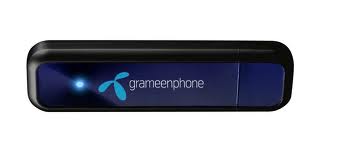Analysis of the Problem
Broad Statement
To identify what factor is important for usage of Grameen Phone (GP) Internet.
Objectives
Determine the satisfaction of Grameen Phone Internet Service user.
Identify of the effectiveness of every factors to each other.
Identify the factors responsible for Internet Users.
Variables:
Dependent Variable:
Usage of GP Internet
Independent Variables:
- 1. Speed
- 2. Internet Service Charge
- 3. Promotional offers
- 4. Customer Care
- 5. TV commercials
- 6. Network coverage
- 7. Connectivity
- 8. Off time Service Charge
- 9. EDGE Service vs. GPRS Service
Approaches to the Problem
The research has been started with some secondary data available in the market. Then an exploratory type research has been conducted to identify the problem which includes qualitative investigation among the Internet User of the Grameen Phone (GP). Some of the factors have been pointed out which may influence to be satisfied on the job. These are mainly Speed, Internet Service Charge, Promotional Offers, Customer Care, TV Commercials, Network Coverage, Connectivity, off time Service Charge, EDGE Service vs. GPRS Service etc.
By considering all of this issue the researcher tried to learn the following things:
Who are the Users of the Grameen Phone?
What are the factors involved for the usage of Grameen Phone Internet Service?
Why the customers use the Internet Service?
When to use the Internet Service?
Where to use the Internet Service?
What are the ways to use the Internet Service?
Based on the above I have designed the research, collect the data and analysis accordingly.
Research Design
Type of Research
To measure the contribution of the problem for this case a descriptive research design has been considered.
Type of Data
There was a small available data in the market, so, primary data is required for this research. The data was mainly related to the Internet Service User of Grameen Phone.
Data Collection Method
Survey method is the research method. Structured questionnaire has been prepared with some limited explicit alternatives.
Sampling Process
The target population is basically those people who are the user of Grameen Phone Internet Service. Total Sample size has been considered as 30. As the sample size is very small compare to the total population that’s why a mix of judgmental and convenience sampling technique has been considered.
Questioning Process
The questionnaire has been asked during the leisure period when they feel little free on their job and feel free to express their idea. I have questioned to the respondent based on the questionnaire format and not use the ambiguous words.
Scaling Technique
The questionnaire has been selected as the response categories set. The questionnaire involved a set of response categories. 9 point likert scale has been considered. 1 means the respondent are extremely disagree where as 9 means the extremely agree. The total score than put in to the SPSS software for the further analysis.
Hypotheses Testing
Any research must be carried out by testing the hypotheses. Hypotheses are unproven statements based on which the research is carried out. There are two types of hypotheses- Null hypothesis and Alternative hypothesis. Null hypothesis is a type of hypothesis where no exception is expected while some exception is expected in alternative hypothesis.
This research also involves hypotheses testing. Before the hypotheses testing, two hypotheses are selected. The null hypothesis was assumed that, there is no contribution of the factors over the dependent variable. The alternative hypothesis was assumed that, there is some contribution of each of the factors over the dependent variable. As there are two hypotheses, a one tailed test was carried out where a non-acceptance of null hypothesis resulted an automatic acceptation of the alternative hypothesis. Hypothesis test was done using the multiple regression analysis.
Methodology for Data Analysis
Various methods of data analysis can be used for my research study like ANOVA, Multiple Regression Analysis, and Discriminant Analysis etc. Since the research includes relationships among some variables, multiple regression analysis is chosen. ANOVA is also necessary. The significance of the variables and their importance are needed to be analyzed. Bearing these in mind, I carry out a discriminant analysis. Detailed theoretical backgrounds and descriptions of these techniques are given below.
Multiple Regression Analysis
To describe the relationship among two variables regression analysis is used. Multiple regression analysis is used when there are more than two variables. In my research, there are 9 independent variables acting upon the dependent variable. So I use multiple regression analysis.
Multiple regression analysis can be presented by an equation, in which, the dependent variable is the summation of the independent variables. The coefficient of each of the independent variable determines the significance of it. That is, higher the coefficient higher the contribution of that independent variable. A positive sign of the independent variable indicates that the contribution is positive, that is, an increase in the contribution results in an increase in the dependent variable. Similarly, a negative sign indicates the contribution is negative and an increase in the contribution of that independent variable would result in a decrease in the dependent variable.
Following is an example of such equation:
Y= β0+ β1X1+ β2X2+ β3X3+ β4X4+ β5X5+……………………..+ βnXn
Where, Y denotes the dependent variable and the X1-n represent the independent variables.
To test the hypotheses multiple regression analysis is used too. As the null hypothesis is assumed that there is no contribution of each of the factors over the dependent variable, a measure required to identify the contribution of the factors. The R2 value is used for this purpose. The R2 value indicates the overall contribution or influence of the independent variables on the dependent variable. When the value is zero it indicates that no summed contribution of the independent variables in determining employee satisfaction. A value above zero indicates some contribution. Thus it clearly indicates that a zero R2 value results in an acceptance of the null hypothesis.
In brief, the hypotheses test according to multiple regression analysis can be stated as
H0: R2 = 0
H1: R2 ≠ 0
Discriminant Analysis
In marketing research discriminant analysis is used when the dependent variable is categorical and the independent variables are metric scaled in nature. It is a strong analytical tool for measuring the effects of some independent variables on a dependent variable. On the basis of the influences of the independent variables, the dependent variable is grouped into some categories. The discriminant analysis shows the significance of each of the independent variables in creating such categories, also their relative importance and their ability to distinguish among the categories.
The tables resulting from discriminant analysis include the within mean correlation tables, ANOVA tables, test of significance tables, structured metric tables, standardized canonical discriminant coefficient tables etc. There are some values based on which the analysis is done. Among these values, most important ones are Wilks’ lambda, F ratio, Standardized Canonical Discriminant function coefficient etc. Wilks’ Lambda gives the categorization capability of the variables while F ratio gives the significance of the variables and standardized canonical discriminant function coefficient gives the relative importance of each of the factors.
To convert the metric data into categorical data, the raw data was modified. The response categories from 1 to3 are assumed to be low response categories and are assigned the number one in the SPSS variable view. Response categories from 4 to 6 are assigned number two and response categories from 7 to 9 are assigned number three in the SPSS variable view.
Results
To analyze I put the data collected from my fieldwork into the SPSS. Before input I declared the variables in the variable view window. Then I put the data in the data window and clicked on the analyze tab for analysis. For regression analysis I used the linear regression analysis tab and for discriminant analysis I used the discriminant analysis tab. Two output windows Ire found immediately. I analyzed these outputs and contents of these windows are given as my results in the following sections.
Regression Analysis
Hypotheses Test
The hypotheses assumed for the hypotheses test are
H0: R2 = 0
H1: R2 ≠ 0
Following table is found from the regression analysis
Model Summary | ||||
Model | R | R Square | Adjusted R Square | Std. Error of the Estimate |
1 | .657a | .431 | .133 | 2.289 |
| a. Predictors: (Constant), Off Time service charge, Browsing speed, Network Coverage, Service Charge, Customer Care, Promotional Offer, Connectivity, TV Commercial, EDGE Service | ||||
Here, R2 = 0.431 which is grater than zero. I know, R2 = 0 means that there is no correlation among the variables. But as my value is 0.431, which is greater than zero, I can draw this conclusion that there is a significant amount of correlation among the variables. So, according to the one tailed test, the null hypothesis can be rejected which means an automatic acceptance of the alternative hypothesis. That is, the decision can be drawn that there exist some relationships among the variables.
Relationship Analysis
Following table is the summary of the multiple regression analysis from which the relationship is analyzed.
Coefficientsa | ||||||
Model | Unstandardized Coefficients | Standardized Coefficients | t | Sig. | ||
B | Std. Error | Beta | ||||
1 | (Constant) | .878 | 3.125 | .281 | .782 | |
| Service charge | .247 | .276 | .198 | .890 | .384 | |
| Browsing speed | .277 | .319 | .197 | .874 | .393 | |
| Customer Care | .036 | .320 | .027 | .111 | .913 | |
| Promotional Offer | .338 | .360 | .232 | .938 | .360 | |
| TV Commercial | -.110 | .353 | -.087 | -.311 | .759 | |
| Network Coverage | .327 | .254 | .282 | 1.291 | .212 | |
| Connectivity | .408 | .328 | .355 | 1.243 | .229 | |
| EDGE service | -.307 | .414 | -.235 | -.740 | .468 | |
| Off Time service charge | -.111 | .410 | -.088 | -.274 | .787 | |
| a. Dependent Variable: Usage | ||||||
As it mentioned earlier in the data analysis section that the above coefficients indicated the relationships among the variables. Following equation can be drawn from this table
Ui = 0.878 + 0.247S + 0.277B + 0.036C1 + 0.338P – 0.110T + 0.327N + 0.408C2 – 0.307E – 0.111O
Where,
Ui = Usage C1 = Customer care
P = Promotional Offer T = TV Commercial
N = Network Coverage B = Browsing speed
S = Service Charge C2 = Connectivity
E = EDGE Service O = Off-time Service Charge
There are both positive and negative coefficients of the independent variables. The positive coefficients indicate that they have a positive relationship with the dependent variable and the negative coefficients indicate that they have a negative relationship with the dependent variable. This means an increase in each of the positive coefficient independent variables would result in an increase in the dependent variable or a decrease in each of the negative coefficient independent variables would result in a decrease in the dependent variable. I would check now how much each of the independent variable has contributed to the customer Satisfaction of GP-Internet.
- Service Charge has 24.7% positive contribution which means users are satisfied with present charges of GP Internet.
- Browsing speed has also 27.7% positive contribution, which means customers are happy with present speed of internet.
- Customer care has an amount of contribution of 3.60% as positive that means customers are happy with the services.
- Promotional Offer has a significant amount of contribution of 33.8%, which means customers are also happy with present service benefits.
- TV commercial has negative contribution of 11.00%, which means customers are not happy with present promotional activity.
- Network Coverage has significant contribution of 32.00%
- Connectivity has also a significant amount of positive contribution of 40.80%, which means with present system are satisfactory.
- EDGE Service has amount of negative contribution of 30.70%, which means with present system are not satisfactory
- Off-time service charge has also a negative contribution of 11.10%, which means with present systems are not satisfactory.
According to this regression analysis the rating for the independent variables can be made as mentioned in the following table:
Effects of independent variables on usage of GP int. and their corresponding importance (Multiple Regression Analysis)
| Variable Name | Effect on the usage of GP internet | Rank |
| ConnectivityPromotional Offer Network Coverage Browsing speed Service Charge Customer Care TV Commercial Off Time service charge EDGE Service | High Low | 12 3 4 5 6 7 8 9 |
Discriminant Analysis
For the analysis of discrimination among the groups I selected the Wilks’ Lambda Coefficient, F ratio and Standardized Canonical Discriminant Function Coefficients. There are other measures based on which the analysis can be done. But due to the simplicity of the project, these analyses are more than enough. The main part of the analysis can be given in a tabular form as follows:
Tests of Equality of Group Means | |||||
Wilks’ Lambda | F | df1 | df2 | Sig. | |
| Service Charge | .899 | 1.518 | 2 | 27 | .237 |
| Browsing Speed | .970 | .415 | 2 | 27 | .665 |
| Customer Care | .911 | 1.323 | 2 | 27 | .283 |
| Promotional Offer | .912 | 1.296 | 2 | 27 | .290 |
| TV Commercial | .945 | .781 | 2 | 27 | .468 |
| Network Coverage | .758 | 4.320 | 2 | 27 | .024 |
| Connectivity | .727 | 5.059 | 2 | 27 | .014 |
| EDGE Service | .825 | 2.859 | 2 | 27 | .075 |
| Off Time Service Charge | .655 | 7.096 | 2 | 27 | .003 |
Analysis of Wilks’ Lambda
The Coefficient of Wilks’ Lambda shows how much discrimination one independent variable can make among the three categories imagined for the employee satisfaction of GP-Internet. The higher values indicate low discrimination ability and a lower value indicates higher discrimination ability. The variable which causes the most discrimination among the categories is indeed the most important one to look for.
- The value of Wilks’ Lambda is least for off time service charges. As I know the lower the value the higher the ability to discriminate, so off time service charges has the highest discriminating power among all the independent variables.
- Value of Wilks’ Lambda is also relatively low for Network coverage & connectivity. So the facility has also relatively high discriminating capability.
- EDGE service has moderate values of Wilks’ Lambda. So this independent variable can be described as medium discriminating variable.
- Customer care and Promotional offer have higher values of Wilks’ Lambda. So these independent variables have lower discriminating capability.
- Browsing speed and TV commercial have the top two highest values of Wilks’ Lambda. So I can assume that they would have the lowest discriminating capabilities.
Analysis made on Wilks’ Lambda
| Variable Name | Discriminating ability on the usage of GP internet | Rank |
| Off Time Service ChargeConnectivity Network Coverage EDGE Service Service Charge Customer Care Promotional Offer TV Commercial Browsing speed | High Low | 12 3 4 5 6 7 8 9 |
Analysis of Standardized Canonical Discriminant Function Coefficients
Standardized Canonical Discriminant Function Coefficients shows the relative importance of each of the independent variable in discriminating the categories of employee satisfaction of GP-Internet. The lower value of an independent variable shows a lower importance while a higher value shows the higher importance. In the table I see that the value of Service benefit has the highest Standardized Canonical Discriminant Function Coefficients. This means, this independent variable is the most important one, or the great influencer to discriminate among the three categories. The following table shows the relative importance of each of the independent variables.
Analysis made on Standardized Canonical Discriminant Function Coefficients
Variable Name | Effect on the usage of GP internet | Rank |
| Off Time Service ChargeNetwork Coverage Service Charge Connectivity TV Commercial Browsing Speed Promotional Offer EDGE Service Customer Care | High
Low | 1 2 3 4 5 6 7 8 9 |
Recommendation and Conclusion
After analyzing the results on both regression analysis and discriminant analysis perspective, the following recommendations can be made
- Customer Satisfaction of the Grameen Phone Internet Service heavily depends on the various factors. TV commercial has negative contribution of which means customers are not happy with present promotional activity. On the other hand Promotional Offer has a significant amount of contribution which means customers are happy with present service benefits.
- Off-time service charge has also a negative contribution which means with present systems are not satisfactory. So lucrative off-time service charge make the customer more satisfied.
- Network Coverage and Connectivity has significant amount of positive contribution, which means user are satisfied with the present system.
- Customers are happy with present speed of internet and with present charges of GP Internet. Because both have positive contribution.
- All other factors also influence the satisfaction of the customer not less not more
















